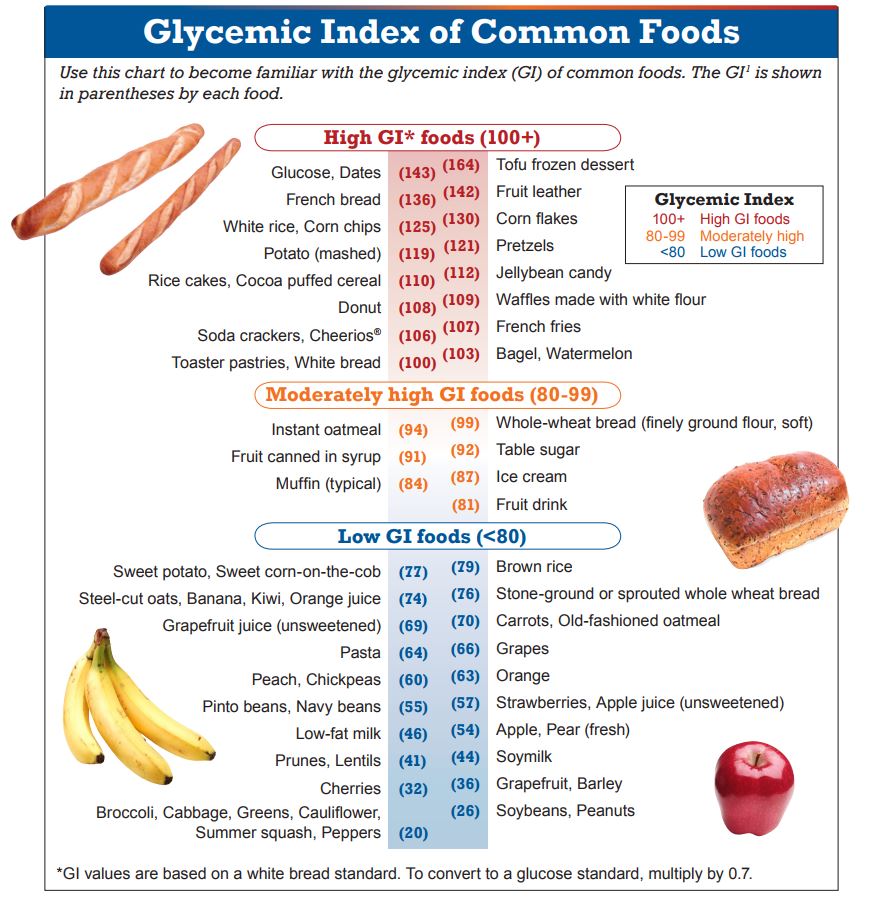Foods To Help Boost Your Metabolism - Choosing Low Glycemic Carbs
As we get older, our metabolism slows down, which can lead to weight gain. Small dietary adjustments can help minimize unwanted pounds in our middle and later years.
Try these suggestions:
Choose healthy carbohydrates. Replace refined, high-glycemic index foods with low-glycemic choices.
High-glycemic foods have a glycemic index of >100. They raise insulin levels, causing blood sugar to fall quickly which results in hunger and desire to eat. In the Nurses’ Health Study, women who had a high intake of high GI foods were twice as likely to have a heart attack as women eating mostly low GI foods. They were also more likely to develop diabetes. Examples include soft drinks, sweets, white bread, pastry, white rice, corn chips, most snack foods, and French fries.
Low-glycemic foods have a glycemic index of less than 80. They are more healthful and help control your appetite – blood sugar levels are more stable and you are not as likely to get hungry so soon. Examples include low starch vegetables, pasta (prepared aldente), most fresh fruits, whole grain, sprouted wheat breads, brown rice, nuts, legumes/beans including soy, and milk. The do not cause the spikes in blood glucose levels that encourage the storage of fat.
For more examples see the chart below...
Use spices. Capsaicin (the compound that gives chili peppers their bite), black pepper and ginger all boost the generation of heat in the body, leading to more calories burned.
Drink green tea. The main antioxidant polyphenol in green tea, known as epigallocatechin gallate or EGCG, stimulates the body to help burn calories. Drink a few cups of green tea every day.
You should also strive to embrace hunger, but do not starve yourself. Many people believe that eating five or six small meals daily boosts metabolism, but recent research indicates that’s probably false. A study from the University of Ottawa found that on a low-calorie diet, there was no weight loss advantage to splitting calories among six meals rather than three. A second study found that switching from three daily meals to six did not boost calorie-burning or fat loss. In fact, the researchers concluded, eating six meals a day actually made people want to eat more.
To increase fat metabolism, allow yourself to be slightly hungry now and then. The best way may be to eat two or three modest meals daily, with no snacks in a 12-hour window of time or less. For example, eating your meals between 7am and 6pm. Be certain that this does not and should not translate into very low calorie eating, as doing this for weeks or longer will have a negative impact on our metabolism.


